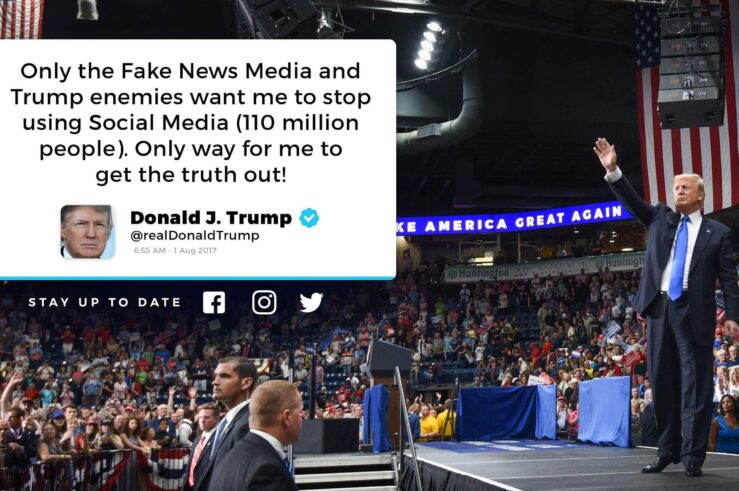Showing archive for: “US Constitution”
Big Ink vs. Bigger Tech
[TOTM: The following is the fifth in a series of posts by TOTM guests and authors on the politicization of antitrust. The entire series of posts is available here.] This post is authored by Ramsi Woodcock, Assistant Professor, College of Law, and Assistant Professor, Department of Management at Gatton College of Business & Economics, University ... Big Ink vs. Bigger Tech
Towards a Democratic Antitrust
This symposium discusses the “The Politicization of Antitrust.” As the invite itself stated, this is an umbrella topic that encompasses a wide range of subjects: from incorporating environmental or labor concerns in antitrust enforcement, to political pressure in enforcement decision-making, to national security laws (CFIUS-type enforcement), protectionism, federalism, and more. This contribution will focus on ... Towards a Democratic Antitrust
Making Sense of the Google Android Decision (part 1): Four Problems with the EU Commission’s Market Definition
This is the first in a series of TOTM blog posts discussing the Commission’s recently published Google Android decision. It draws on research from a soon-to-be published ICLE white paper. The European Commission’s recent Google Android decision will surely go down as one of the most important competition proceedings of the past decade. And yet, ... Making Sense of the Google Android Decision (part 1): Four Problems with the EU Commission’s Market Definition
The Unconstitutionality of the FCC’s Leased Access Rules
Monday July 22, ICLE filed a regulatory comment arguing the leased access requirements enforced by the FCC are unconstitutional compelled speech that violate the First Amendment. When the DC Circuit Court of Appeals last reviewed the constitutionality of leased access rules in Time Warner v. FCC, cable had so-called “bottleneck power” over the marketplace for ... The Unconstitutionality of the FCC’s Leased Access Rules
The Third Circuit’s Oberdorf v. Amazon opinion offers a good approach to reining in the worst abuses of Section 230
[Note: A group of 50 academics and 27 organizations, including both myself and ICLE, recently released a statement of principles for lawmakers to consider in discussions of Section 230.] In a remarkable ruling issued earlier this month, the Third Circuit Court of Appeals held in Oberdorf v. Amazon that, under Pennsylvania products liability law, Amazon ... The Third Circuit’s Oberdorf v. Amazon opinion offers a good approach to reining in the worst abuses of Section 230
There’s nothing “conservative” about Trump’s views on free speech and the regulation of social media
Yesterday was President Trump’s big “Social Media Summit” where he got together with a number of right-wing firebrands to decry the power of Big Tech to censor conservatives online. According to the Wall Street Journal: Mr. Trump attacked social-media companies he says are trying to silence individuals and groups with right-leaning views, without presenting specific ... There’s nothing “conservative” about Trump’s views on free speech and the regulation of social media
Section 230 principles for lawmakers and a note of caution as Trump convenes his “social media summit”
Neither side in the debate over Section 230 is blameless for the current state of affairs. Reform/repeal proponents have tended to offer ill-considered, irrelevant, or often simply incorrect justifications for amending or tossing Section 230. Meanwhile, many supporters of the law in its current form are reflexively resistant to any change and too quick to dismiss the more reasonable concerns that have been voiced. Most of all, the urge to politicize this issue — on all sides — stands squarely in the way of any sensible discussion and thus of any sensible reform.
Ten Reasons Why the California Consumer Privacy Act (CCPA) Is Going to Be a Dumpster Fire
Last year, real estate developer Alastair Mactaggart spent nearly $3.5 million to put a privacy law on the ballot in California’s November election. He then negotiated a deal with state lawmakers to withdraw the ballot initiative if they passed their own privacy bill. That law — the California Consumer Privacy Act (CCPA) — was enacted ... Ten Reasons Why the California Consumer Privacy Act (CCPA) Is Going to Be a Dumpster Fire
The Australian approach to “consumer protection” policy is a threat to consumer welfare and free speech
The US Senate Subcommittee on Antitrust, Competition Policy, and Consumer Rights recently held hearings to see what, if anything, the U.S. might learn from the approaches of other countries regarding antitrust and consumer protection. US lawmakers would do well to be wary of examples from other jurisdictions, however, that are rooted in different legal and ... The Australian approach to “consumer protection” policy is a threat to consumer welfare and free speech
Telemarketing, Technology, and Why the Telephone Sucks (and how to fix it)
It is a truth universally acknowledged that unwanted telephone calls are among the most reviled annoyances known to man. But this does not mean that laws intended to prohibit these calls are themselves necessarily good. Indeed, in one sense we know intuitively that they are not good. These laws have proven wholly ineffective at curtailing ... Telemarketing, Technology, and Why the Telephone Sucks (and how to fix it)
Correcting the Federalist Society Review’s Mischaracterization of How to Regulate
Ours is not an age of nuance. It’s an age of tribalism, of teams—“Yer either fer us or agin’ us!” Perhaps I should have been less surprised, then, when I read the unfavorable review of my book How to Regulate in, of all places, the Federalist Society Review. I had expected some positive feedback from ... Correcting the Federalist Society Review’s Mischaracterization of How to Regulate
Chevron and the Politicization of Law (or, Chevron Step Three)
A recent exchange between Chris Walker and Philip Hamburger about Walker’s ongoing empirical work on the Chevron doctrine (the idea that judges must defer to reasonable agency interpretations of ambiguous statutes) gives me a long-sought opportunity to discuss what I view as the greatest practical problem with the Chevron doctrine: it increases both politicization and polarization of ... Chevron and the Politicization of Law (or, Chevron Step Three)







